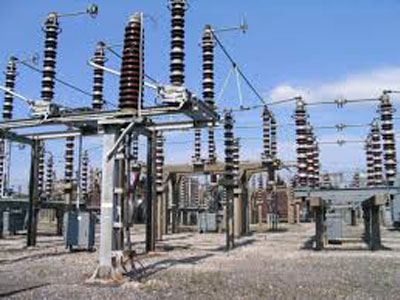Power Supply: Reason behind current load shedding-TCN
The Transmission Company of Nigeria (TCN says it is not responsible for the current load shedding being experienced in the country.
It attributed it to the low power being presently generated.
Mrs Ndidi Mbah, TCN General Manager, Public Affairs in a statement in Abuja on Tuesday said that TCN does not generate electricity.
According to her, TCN can only transport cumulative generation from all the generation companies nationwide to distribution load centres.
She said that the distribution companies were responsible for end-users consumption.

Mbah said that TCN allocates power to distribution companies based on approved percentage formula approved by NERC from the total generation available per hour or on day-ahead nomination.
“Presently, the cumulative generation nationwide is low and generation companies have attributed this to several factors.
” Including poor gas supply, fault in generating units of generating companies, scheduled and unscheduled maintenance.
” All of which have caused most power generating companies to limit their generation, and sometimes not generate at all,” she said.
Mbah said that a summary of the power generating profiles in the last two months for instance, clearly shows that 14 gas powered generating stations were either not generating at all or had limited generation at various times within the period.
“Further depleting the quantum of power generation available for transmission into the grid on a daily basis.”
Read Also:N-Power: FG commences N-Knowledge training across 6 Geopolitical Zones
Mbah listed the power generating stations in this category to include; Omotosho units 5 & 6, Olorunsogo units 3, 4 & 6, Omoku units 3 & 6, Omotosho, Nigeria Independent Power Plant (NIPP) units 3 & 4, Delta units 15, 17, and 18.
Others she said were Afam VI units 11 & 12, Olorunsogo NIPP unit 3, Ihovbor NIPP unit 2, Sapele Steam unit 3, Sapele NIPP unit 1, Odukpani NIPP units 1 & 3, and Okpai units 11, 12 & 18.
According to her, also, within the same period, Jebba Hydro and Shiroro Power Generating Stations were either out or had limited generation, causing additional loss of 232 Mega Watts (MW) from the grid,
“While other power generating plants such as Omotosho units 3&4, Olorunsogo units 1, Delta units 10 & 20, Afam VI unit 13, Ihovbor NIPP units 4, Geregu NIPP units 22 & 23 and Odukpani NIPP units 2, 4 & 5, have also been out.
“Either on fault or for scheduled maintenance, causing a further loss of about 3,180 MW from the grid.
“A combination of the above scenarios have persisted and the total effect on the grid is persistent low generation.
“Which TCN operators have had to strive to dispatch in a way that will not jeopardise the stability of the grid,” she said.
Mbah said that from March 1, to March 4, there was generation shortfall due to water management in Shiroro and Jebba hydro with the loss of 307MW and 125MW respectively from both stations.
She said that within the same period, there were fault and technical problems in Egbin, causing 514MW shortfall and in Geregu causing 230MW shortfall, while reported fault at Alaoji NIPP reduced generation from the substation by 263MW.
“Gas constraint alone in Olorunsogo gas generating plant reduced generation from the station by 104MW, in the same vein, Omotosho gas lost 102MW and Sapele NIPP lost 263MW.
Read Also:Nigeria to provide electricity to 5m households- Buhari
” In Omotosho NIPP, there was generation shortfall of 233MW and in Omoku a shortfall of 112MW.
“Two units in Okpai have limited generation due to technical problems causing a 204MW drop in generation and in Afam VI 511MW drop in generation.
“Gas constraint and fault in Olorunsogo NIPP reduced generation by 240MW, Geregu NIPP by 435MW, and Ihovbor by 142MW.
“Also, due to gas pipeline pigging, Odukpani NIPP was shut down which caused a reduction of generation by 575MW.
“A combination of issues ranging from gas constraints, fault, and technical problems within generating plants caused persistent low generation and consequently low load allocation to distribution companies nationwide.”
According to her, based on facts above, TCN can only transmit what is being generated by GenCos and presently they are all generating below capacity.
“It is important to note that except cumulative power generation increases considerably for TCN to transmit to distribution companies nationwide, TCN will be left with no choice than to continue to load shed.
“We will, however, continue to work hard to ensure the efficient allocation of the total load generated by power generating stations into the grid
“Bearing in mind the need to ensure that the national grid is stable in spite of the challenges posed by insufficient load on the transmission grid,” she said. (NAN)



566180 304354Some genuinely marvelous work on behalf with the owner of this internet web site , dead great topic matter. 602689
Regards for sharing this amazing webpage. zapex te koop in Spanje
I appreciate looking at your web site. Many thanks! Compra mitil en Bélgica de forma segura